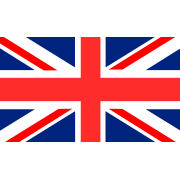General information
Normally, suppliers account for VAT, but in specific cases, the customer must account for VAT due. Here are crucial situations:
Purchasing Services from Abroad (Reverse Charge)
- Services from overseas suppliers are VAT-free.
- Recipients apply the reverse charge, acting as both supplier and recipient on the same VAT return:
- Account for output tax (full supply value) in Box 1.
- Include VAT from Box 1 as input tax in Box 4 (subject to partial exemption/non-business rules).
- Record full supply value in Boxes 6 and 7.
- Value of Supply: Based on consideration paid (money or equivalent if non-monetary). Excludes UK VAT but includes foreign taxes.
- Time of Supply: When payment is made or, for non-monetary consideration, the last day of the VAT period when services are performed.
- If input tax is fully attributable to taxable supplies, there’s no net cost. Otherwise, it mirrors a UK supply, ensuring fairness.
Deregistration
- Goods on hand at deregistration (value >£1,000) with claimed input tax trigger a self-supply.
- The business is deemed to supply itself, with output tax due but no input tax recovery.
Flat Rate Scheme
On leaving the flat rate scheme (while remaining VAT-registered), a self-supply applies to capital items with claimed input tax.
Domestic Reverse Charge (DRC)
- Applies to standard/reduced-rated construction services between VAT-registered construction businesses.
- The recipient accounts for VAT, paying it to HMRC instead of the supplier, and can reclaim it per normal VAT rules.
- DRC applies up the supply chain until the recipient is an end user (not making construction supplies).
Mobile Telephones and Computer Chips
- To combat missing trader intra-community fraud (MTIC), supplies of mobile phones/computer chips valued at £5,000+ between VAT-registered businesses are subject to reverse charge.
- The purchaser accounts for VAT, not the seller.
Road Fuel and Power for Private Use
- Business fuel used privately triggers a self-supply.
- VAT is based on HMRC’s road fuel scale charges (per vehicle, per quarter) or calculated using detailed mileage records for actual business use.
Land, Buildings, and Motor Cars
Specific self-supply rules apply to certain land, building, and motor trade transactions (details complex, not covered here).
Penalties
- Even if VAT-neutral, failing to apply reverse charge/self-supply can lead to HMRC penalties and interest.
- Simple accounting entries can resolve issues if recognized and recorded correctly.
Other news from United Kingdom
UK Government Considering VAT Cut on Public EV Charging
 United Kingdom
Author: Ema Stamenković
United Kingdom
Author: Ema Stamenković
Officials are considering reducing VAT on public EV charging from 20% to 5% to match home charging rates, addressing tax disparities. This follows concerns over a pay-per-mile scheme starting in 2028, aimed at ensuring EV adoption remains viable amid rising costs. Officials are exploring a reduction in VAT on public EV charging from 20% to 5%. This would align it with the reduced VAT rate paid by... Read more



UK Mandatory E-Invoicing from 2029: Main Points from Consultation Response
 United Kingdom
Author: Ema Stamenković
United Kingdom
Author: Ema Stamenković
The UK will mandate e-invoicing by 2029 through a 4-corner model, deferring real-time reporting (RTR) until after e-invoicing is established. Despite broad support for RTR among respondents, it requires clear standards, governance, and phased implementation. HMRC underscores that e-invoicing alone cannot pre-fill VAT returns, but it may inform future products. Respondents highlighted benefits of R... Read more



UK: Navigating Cross-Border VAT Compliance for Gibraltar’s Digital Economy
 United Kingdom
Author: Ema Stamenković
United Kingdom
Author: Ema Stamenković
VAT is a crucial legal requirement that dictates service taxation and registration in foreign jurisdictions. Being in a no-VAT zone doesn't negate risks of non-compliance. Without proof of B2B transactions, suppliers may face retroactive B2C tax liabilities. The article highlights the need for robust B2B validation under the "Two-Item Rule." B2B transactions benefit from reverse charge mechanisms,... Read more



UK to Implement Nationwide E‑Invoicing by 2029
 United Kingdom
Author: Ema Stamenković
United Kingdom
Author: Ema Stamenković
UK confirms mandatory electronic invoicing for VAT starting April 2029, giving businesses time to prepare. The UK government has confirmed mandatory electronic invoicing for VAT purposes starting in April 2029. According to a December 10 statement from the Association of Taxation Technicians (ATT), the extended timeline gives businesses more time to prepare. Per the government's November 26 anno... Read more



Supporting UK and EU Firms with VAT Fiscal Representation
 United Kingdom
Author: Ema Stamenković
United Kingdom
Author: Ema Stamenković
Since Brexit, VAT rules have notably shifted, presenting compliance challenges for cross-border businesses. VAT fiscal representation enables non-established businesses to meet local VAT obligations via a local professional. The representative ensures compliance and is often jointly liable for VAT debts. While UK businesses may need one in some EU states, EU businesses typically register directly... Read more



UK Mandates B2B e-Invoicing from 2029
 United Kingdom
Author: Ema Stamenković
United Kingdom
Author: Ema Stamenković
The UK will mandate e-invoicing for all VAT invoices by 2029, enhancing efficiency and compliance with a phased rollout and detailed plans to be announced in Budget 2026. The UK Government has announced mandatory e-invoicing for all VAT invoices (B2B and B2G) starting in 2029, with a detailed roadmap to be published at Budget 2026. The move aims to modernise tax processes, boost efficiency, produc... Read more



New document was uploaded: Online Sales in the United Kingdom
 United Kingdom
Author: Ema Stamenković
United Kingdom
Author: Ema Stamenković
This document aims to explain how online sales are handled in the UK. In the UK, there are various requirements for online sales, which implies that there are specific requirements that must be fulfilled according to The Consumer Rights Act 2015, The Consumer Contracts Regulations and The Electronic Commerce (EC Directive) Regulations 2002. Read more
Subscribe to get access to the latest news, documents, webinars and educations.
Already subscriber? Login

